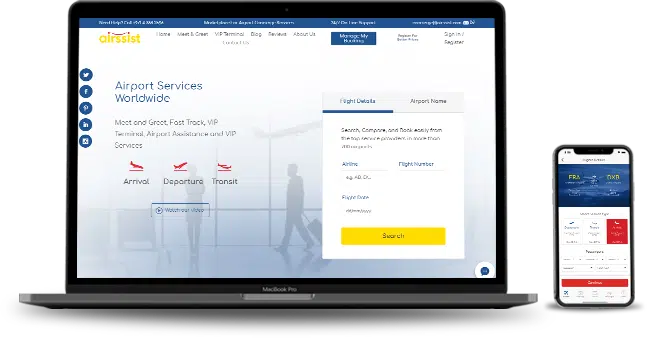Table of Contents
Sustainability is a trending topic worldwide. It’s no wonder, then, that it’s also increasingly important to businesses to make a sustainable business travel policy . As a result, most firms today have at least a basic sustainability strategy. But why exactly is sustainability important in business?
Businesses discovered the importance of face-to-face encounters in fostering the growth of client connections during the COVID-19 pandemic. and It’s obvious that travel is a crucial business function since business travel has incalculable value for corporations. However, when things get back to normal in terms of travel and business, businesses are reexamining their corporate travel policy to take sustainable business travel policy into account.
What Does Sustainable Business Travel Mean?
Sustainable business travel is the deliberate attempt to travel in a manner that has a low impact on the environment. Sustainability necessitates resource management and choosing carbon-neutral travel options for purposeful corporate travel.
For instance, according to the Air Transport Action Group, air travel is responsible for 12% of all CO2 emissions globally, and 80% of those emissions are emitted by flights over 1500 kilometers.
Sustainable Aviation Fuels (SAF) can cut the carbon footprint of aviation fuel by up to 80% to actively reduce aviation-related CO2 emissions. Sustainable business travel can be promoted by selecting airline partners who are dedicated to lowering their carbon footprints.
Why Is Sustainable Business Travel Important?
Even though business travel is frequently used as a gauge of economic success, it’s crucial to keep in mind that travel also has social and environmental implications.
Although there are many more advantages to using sustainable business travel strategies, your staff needs to be aware of the reason why your organization supports them. The greatest method to achieve your objectives of a more ecologically responsible business travel program is by gaining your employees. Once informed, your business travelers will be more environmentally conscious and make decisions that are better for your organization, the places they plan to visit, and the environment as a whole.
When You Run A Business Sustainably, There Are Several Positive Impacts, Including:
- Human impact: Sustainable firms treat their workers and suppliers fairly, especially those who come from underdeveloped regions or underrepresented groups.
- Environmental impact: Sustainable business practices whenever possible safeguard the environment and preserve natural resources.
- Social impact: Companies that are socially responsible understand their value to individuals and society as a whole and strive to enhance their local communities.
- Business Impact: Consumer support for sustainable firms is anticipated to increase. By consuming less energy and producing less waste, sustainability also lowers costs for businesses.
How To Make Business Travel Greener In 2025
Sustainable travel was a prominent topic in the industry even before the coronavirus pandemic broke out. Getting people moving is crucial for attaining the SDGs, especially those that deal with climate change and environmental impact. Now is an excellent moment to consider all the ways we may contribute to their realization.
Here are some practical travel tips for integrating sustainability into business travel:
- Don’t Print Your Travel Documents
- Reduce Plastic Waste
- Do Company Offsites In Sustainable Destinations
- Create A Green Sustainable Business Travel Policy
1. Don’t Print Your Travel Documents
All airports and hotels accept digital travel documents, including tickets, boarding passes, and reservation confirmations. Put in place a “no-print” travel policy in your business to motivate staff who are on the go to use technology. Additionally, avoiding common-touch areas and maintaining social distance are two other benefits of employing contactless technology.
2. Reduce Plastic Waste
Stay away from single-use plastics and always have a reusable water bottle with you! Refilling your water bottle is a terrific method to cut down on plastic waste, whether you’re at the office or on a business trip. Empty the bottle before passing it through airport security, then fill it up at the water fountains. Additionally, you can bring your plastic cutlery off the plane and dispose of it in a recycle bin.
3. Do Company Offsite In Sustainable Destinations
Think about holding important business events—like team-building exercises or offsite—in “sustainable destinations.” Consider visiting nations with cities that are carbon-neutral or that have Eco-friendly urban planning if you want to travel for these reasons.
4. Create A Green Travel Policy
Include environmentally friendly, sustainable methods in your company’s travel policy. Establish specific goals for your “green business travel policy” and invite staff participation. Consider developing an incentive program to recognize and honor the most environmentally conscientious passengers.
How To Establish A Successful Sustainable Business Travel Policy
A sustainable business travel policy can be set up in a matter of minutes. But it pays to do a little research if you want to reduce your carbon footprint. You can assign policies that are more pertinent to your business activities by determining your present carbon footprint and examining your major contributions. You can also use metrics to set more specific goals after completing these stages to track your success and inspire your teams.
- Step 1. Calculate your current carbon emissions
- Step 2. Evaluate your findings
- Step 3: Set straightforward strategies
- Step 4. Offset your remaining carbon emissions
Calculate your current carbon emissions
Calculating your existing carbon emissions is the first step in defining meaningful sustainability goals, as we hinted at above. If your company employs a sustainability manager, they may have thoroughly audited your carbon impact.
Evaluate your findings
You may forecast the number of your future emissions and develop more practical solutions for your sustainable travel policy by analyzing your present carbon footprint. Start by emphasizing the routes that cause your CO2 emissions to be the highest.
Look into if these locations could be switched out for more environmentally friendly alternatives and use them as a reference to create more achievable emission reduction goals. To ensure that any suggested sustainability approach remains cost-effective, be careful to incorporate cost criteria into your study.
Set Straightforward Strategies
Establish some easy-to-implement techniques for your staff to use after assessing your primary CO2 emissions. They’ll make up your sustainable travel policy, so they must be simple to implement. Some examples of sustainability practices you could include are:
- requiring travelers with short itinerary durations to choose train travel over air travel.
- If business travelers must fly, make sure they book direct flights whenever possible.
- Ask passengers to name the airlines that fly longer distances on newer aircraft.
- Determine which airlines are acquiring cutting-edge equipment, such as biofuels, or making investments in their carbon offset plans.
- Depending on how much an airline participates in sustainable business practices like these, compile a list of recommended carriers. Make sure it is understood that staff should use these airlines as much as possible to comply with your sustainability program.
- Encourage staff to use the bus or choose an electric or hybrid car when renting a car or hailing a cab.
Offset your Remaining Carbon E-missions
Unfortunately, despite our best efforts, not all carbon emissions can be eliminated by reducing, recycling, and reusing. This is where choosing a carbon offsetting program can help reduce any detrimental effects on the sustainability of the environment.
Companies may engage with organizations that invest in renewable energy, safeguard sensitive ecosystems, and have a good social impact thanks to the abundance of wonderful possibilities available. To avoid charges of “greenwashing,” however, it is essential to pick a carbon offsetting program that makes a genuine contribution to combating climate change.
The Bottom Line
When it comes to their effects on the environment, the social sector, and the economy, all industries have moral and legal obligations. The influence of your business on the environment and sustainability, as well as how you treat your staff, will be continuously evaluated by all stakeholders, including investors, clients, and employees, as well as local and international communities. With the help of effective travel management like sustainable practices in VIP terminals and meet & greet services you can make sure that the travel components of your sustainability strategy are reliable and can bear scrutiny from all stakeholders.
Note: Please note that the information on this page is generic & subject to change due to fluctuations in airport services. Kindly confirm service availability with our team, as offerings may vary daily.
 French | Français
French | Français Spanish | Espana
Spanish | Espana German | Deutch
German | Deutch Arabic | العربية
Arabic | العربية Chinese | 中文(简体)
Chinese | 中文(简体)  Japanese | 日本語
Japanese | 日本語 







